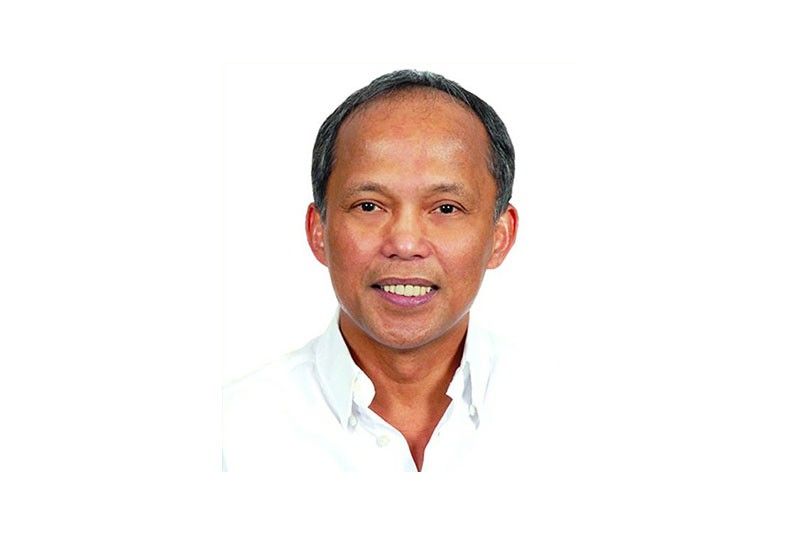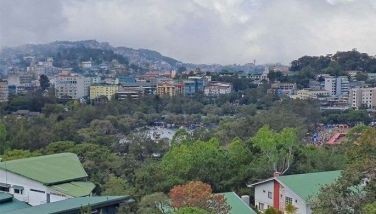TransCo denies influencing takeover of electricity spot market

MANILA, Philippines — State-run National Transmission Corp. (TransCo) said it will exhaust legal actions amid allegations that it had influence in Independent Electricity Market Operator of the Philippines Inc. (IEMOP)’s takeover of the wholesale electricity spot market (WESM).
In a statement, TransCo defended the formation of IEMOP and its takeover of WESM, noting it is legal and mandated under the Electric Power Industry Reform Act (EPIRA) of 2001.
The statement was issued amid news reports implicating TransCo president and CEO Melvin Matibag and Secretary Alfonso Cusi of the Department of Energy (DOE).
“First, except for its transitory role as initial market operator, TransCo has no relevance to the issue on the nature, composition and operations of IEMOP, the creation of which was upon the directive of the DOE, not TransCo,” spokesman Andre de Jesus said in a statement.
De Jesus said the DOE’s participation in the formation of IEMOP is not only legal but also mandated by law.
“The mere insinuation that TransCo – or attorney Matibag himself – can influence the DOE is not just libelous; it is, in itself, completely preposterous. Second, as regards references to Sec. Cusi, his years of dedicated – and untarnished – public service speak for themselves,” he said.
“In the meantime, we are exploring all legal remedies to vindicate the rights of the persons wrongfully implicated in these articles and, more important, to restore the public’s faith in TransCo’s service to the Filipino People,” De Jesus said.
TransCo also reiterated the DOE’s statement on the legality of the IEMOP.
The state-run firm said the IEMOP as independent market operator (IMO) was formed by the DOE and the Philippine Electricity Market Corp. (PEMC) – the former WESM operator – pursuant to Section 30 of EPIRA.
The DOE issued a circular in January 2018 for the IMO Transition Plan, enacted precisely in compliance with this directive.
“The creation of IEMOP, therefore, was not only legal – it was, and more important, mandated by the law (EPIRA) itself,” De Jesus said.
On the issue of the alleged absence of competitive selection process (CSP) in the formation of IEMOP, TransCo said EPIRA does not have a provision requiring competitive bidding.
It also said individuals comprising IEMOP are from the power Industry, particularly from PEMC, “which had formerly managed registration of market participants; received generation offers; set market prices and dispatch schedules of generation plants; and handled billing, settlement, and collections, among other functions.”
“Simply put, IEMOP merely assumed the functions – indeed, continued the mandate – of the PEMC,” De Jesus said.
Lastly, TransCo said IEMOP does not collect P0.50 for every kilowatt-hour that every consumer pays in their monthly electric bill, and that it only collects less than one centavo for every kilowatt-hour used by electricity consumers.
“This amount, approved by no less than the regulator of the Power Industry – the Energy Regulatory Commission (ERC) itself – and exponentially less than what has been reported, is necessary to cover IEMOP’s own budgetary requirements. PEMC also receives a share of these market fees as the WESM’s governance arm,” De Jesus said.
Last week, Puwersa ng Bayaning Atleta party-list Rep. Jericho Nograles questioned how and why the IEMOP got the deal to manage the WESM without going through competitive selection process, calling it a “sweetheart deal.”
Nograles also said the new WESM operator, which only had a P7,000 capitalization, collects 50 centavos for every kilowatt-hour paid by consumers in their electricity bills.
The lawmaker called on the House of Representatives’ committee on energy to investigate the anomaly on the basis that IEMOP’s qualifications are highly questionable.
- Latest
- Trending



























